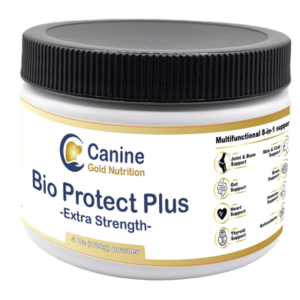All About Dog Probiotics
When it comes to keeping our furry friends healthy, the spotlight often shines on things like diet, exercise, and regular vet check-ups. But there’s another element that’s gaining traction in the world of pet health: probiotics. You’ve probably heard about them in relation to human health, but did you know that probiotics can also benefit your dog? Let’s dig into what probiotics are, why they’re important for dogs, and how to choose the best ones for your pup.
What Are Probiotics?
Probiotics are live microorganisms, often referred to as “good bacteria,” that provide health benefits when consumed in adequate amounts. They work by maintaining a balanced gut microbiome, which is crucial for proper digestion, immune function, and overall health. In simple terms, probiotics help keep the “good guys” in your dog’s gut in check, while preventing the overgrowth of harmful bacteria.
that provide health benefits when consumed in adequate amounts. They work by maintaining a balanced gut microbiome, which is crucial for proper digestion, immune function, and overall health. In simple terms, probiotics help keep the “good guys” in your dog’s gut in check, while preventing the overgrowth of harmful bacteria.
Why Should Your Dog Take Probiotics?
**1. Digestive Health: The most well-known benefit of probiotics is their role in supporting digestive health. If your dog suffers from occasional diarrhea, constipation, or gas, probiotics can help by restoring balance to their gut flora. They’re especially useful after a course of antibiotics, which can disrupt the natural balance of bacteria in the gut.
**2. Immune System Support: A significant portion of the immune system is located in the gut. By promoting a healthy gut microbiome, probiotics can indirectly support your dog’s immune system. This means your pup might be less likely to catch common colds or infections.
**3. Skin and Coat Health: Some studies suggest that probiotics can improve skin conditions and the quality of your dog’s coat. This could be particularly beneficial for dogs with allergies or sensitive skin.
**4. Behavioral Benefits: There’s emerging evidence that gut health can affect behavior. Probiotics might help reduce stress and anxiety in some dogs by stabilizing the gut-brain axis—the connection between gut health and mental well-being.
Choosing the Right Probiotic for Your Dog
 **1. Formulation Matters: Probiotics come in various forms, including powders, capsules, chews, and even in some dog foods. The best form for your dog depends on their preference and ease of administration. Chews might be a good choice for picky eaters, while powders can be mixed into food.
**1. Formulation Matters: Probiotics come in various forms, including powders, capsules, chews, and even in some dog foods. The best form for your dog depends on their preference and ease of administration. Chews might be a good choice for picky eaters, while powders can be mixed into food.
**2. Quality and Strain: Not all probiotics are created equal. Look for products with well-researched strains that are proven to be beneficial for dogs, such as Lactobacillus acidophilus or Bifidobacterium animalis. Additionally, the product should have a high number of colony-forming units (CFUs) to ensure potency.
**3. Consult Your Vet: Before introducing any new supplement into your dog’s diet, it’s always wise to consult your veterinarian. They can provide recommendations based on your dog’s specific health needs and conditions.
**4. Start Slow: If your vet gives the green light, start with a small dose of probiotics and gradually increase it. This allows your dog’s system to adjust and helps you monitor any potential side effects.
Support Your Dog’s Gut Health
-
-
- Reduce Bad Breath
- Energize your dog
- Support joint health
- Maintain gut lining
-
Probiotic Food vs. Supplements
While there are probiotic supplements designed specifically for dogs, some pet foods also contain probiotics. If you choose a probiotic food, ensure it contains viable bacteria strains and meets your dog’s overall nutritional needs. Keep in mind that supplements can provide higher concentrations of probiotics and might be a better option if your dog has specific health issues.
pet foods also contain probiotics. If you choose a probiotic food, ensure it contains viable bacteria strains and meets your dog’s overall nutritional needs. Keep in mind that supplements can provide higher concentrations of probiotics and might be a better option if your dog has specific health issues.
Potential Side Effects
Probiotics are generally safe for dogs, but, like any supplement, they can cause side effects in some cases. Watch for signs of gastrointestinal upset, such as bloating, diarrhea, or changes in appetite. If you notice any adverse effects, discontinue use and consult your vet.
Conclusion
Probiotics can be a valuable addition to your dog’s health regimen, offering benefits that extend beyond just digestive health. By maintaining a balanced gut microbiome, probiotics support overall well-being and can help manage a variety of health issues. Remember to choose a high-quality product, consult with your vet, and monitor your dog’s response to ensure they reap the maximum benefits.
Incorporating probiotics into your dog’s diet might just be the next step in keeping your furry friend happy and healthy. After all, a little extra care goes a long way in ensuring their tails keep wagging for years to come!
Robert
support@iqquest.info



